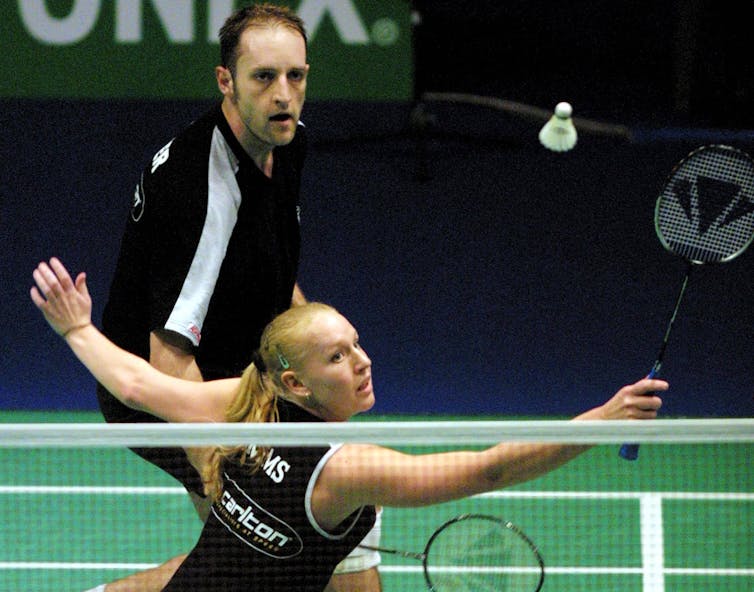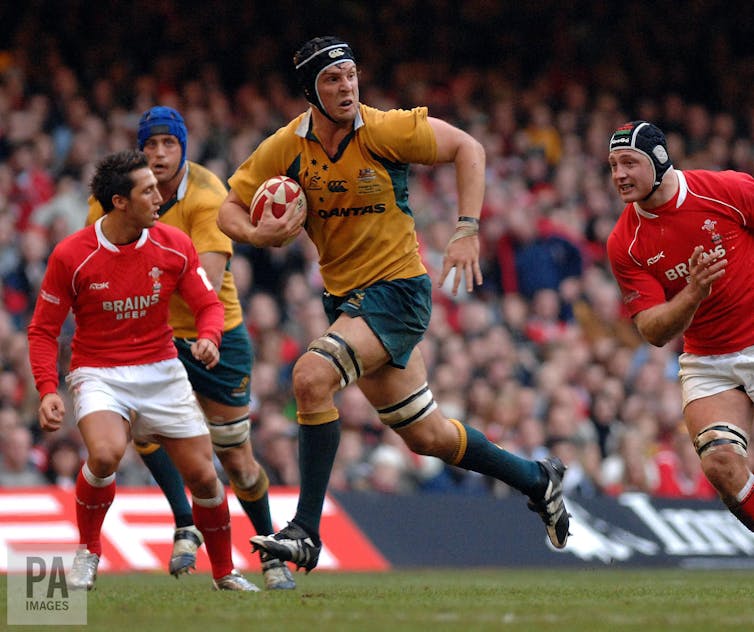 It’s just two weeks since the Gold Coast Commonwealth Games and two months since the Pyeongchang Winter Olympic Games. But if I was to ask if you had talked about them with a colleague or friend in the past week, the answer would probably be no.
It’s just two weeks since the Gold Coast Commonwealth Games and two months since the Pyeongchang Winter Olympic Games. But if I was to ask if you had talked about them with a colleague or friend in the past week, the answer would probably be no.
For all the headlines about Britain’s fine performance at the games – not least, if you will forgive me, the athletes from the University of Stirling – it’s all yesterday’s news. No matter how astonishing the performances, the limelight quickly moves elsewhere.
For many athletes, this is one of the hardest challenges of all. They often face difficult transitions once stadiums are empty – particularly when it’s time for them to retire. Suddenly they are starved of the adrenalin rush and are often poorly qualified to pursue anything else.
Depression, anxiety, and alcohol and substance abuse are all common problems. And bear in mind that retirement age for these people is not late in life – usually it’s in their early 30s or even earlier.
From hero to …
Many athletes have spoken out about these difficulties, including former British Olympic silver medallist Gail Emms, who retired from a glittering badminton career in 2008:
“It’s not just the financial situation, it’s the mental battle I am facing at the moment. I am usually an optimistic person, but I do wonder if the powers-that-be at UK Sport realise that the athletes they rely on for the country’s feel-good factor can sink into this situation.”

I have interviewed numerous former athletes in my native Korea who have had similar experiences. Sung Min, a three-times Olympic swimmer, told me there is, “nothing I can do apart from swimming. This is frustrating me so much”.
Jihyun Jung, a wrestler who took gold in Athens in 2004, said:
“I have committed my entire life to wrestling and I only realised after retirement that I should’ve prepared for life after sport during my athletic career.”
Sometimes these difficulties end in tragedy. Chris Mitchell, a former Scottish professional footballer, and Dan Vickerman, a former Australian rugby union national team star, are among those who have taken their own lives after struggling outside sport. Vickerman’s former colleague, Brendan Cannon, said:
“It’s just such a tragedy that our much loved mate felt so alone at that moment, to do what he did. All of us at different times have had really dark periods post-football.”
Mitchell’s death led to the formation of the Chris Mitchell Foundation. Set up by members of his family, the foundation raises awareness and funding for athletes, ex-athletes and club staff in a similar predicament. In a similar vein, New Zealand Rugby set up Headfirst. Initiatives like these definitely help, but there is only so much they can do on their own.
Transition support
Various governing bodies and sport institutes have developed career transition programmes to assist individuals to develop careers outside sport. My co-authored research has identified programmes in 19 countries, including the likes of Australia’s Personal Excellence initiative and Performance Lifestyle in England.
These programmes tend to provide a broad and well structured range of support services such as career and personal counselling, financial planning and advising, and lifestyle management. Yet while we undoubtedly need more research into programme effectiveness and how many athletes use them, there are enough known cases of struggling former champions to suggest that there could be improvements.
Most programmes are for Olympians and other national-level athletes, for example; for athletes at a lower level, there is often less available. Also, there is an unhelpful sense in which athletes and other sports practitioners see these interventions as being more useful after retirement than while sports careers are still live.
Support practitioners need more training at helping athletes with their psychological needs – everything from self-talk to relaxation to mental skills competence to how they perceive themselves. I have been involved in developing and evaluating a curriculum for this area, and there is not enough training for them available at present.
Then there is the question of family members, coaches and friends: research suggests their support is particularly important for the athletes. People who could play this role need to appreciate what athletes go through and what they can do to assist. Governments and sports organisations need to fund initiatives to help them become more effective.

In general, the whole issue of athletes’ career transitions needs more attention from governments and sporting organisations. They need to fund more research into this area – both into the effectiveness of transition programmes and the training for the people who implement them. Interventions should also not be left to the authorities – sports clubs need to take more of a role, too.
We devote endless media attention to successes at mega sporting events – expect more of the same at the Russian World Cupand the Asia Games in Jakarta imminently. But we are still not thinking enough about how to support top sportspeople in the aftermath.
Not only would this alleviate a lot of suffering, former champions have much to teach the rest of us about determination, dedication and so on. Emms has talked about how top athletes create a “feel-good factor” for their country, but surely they and we deserve more than that. If we are to reach a point where they can decline as gracefully as they reach their peak, this issue will need to be taken much more seriously.
This article originally appeared on The Conversation.


